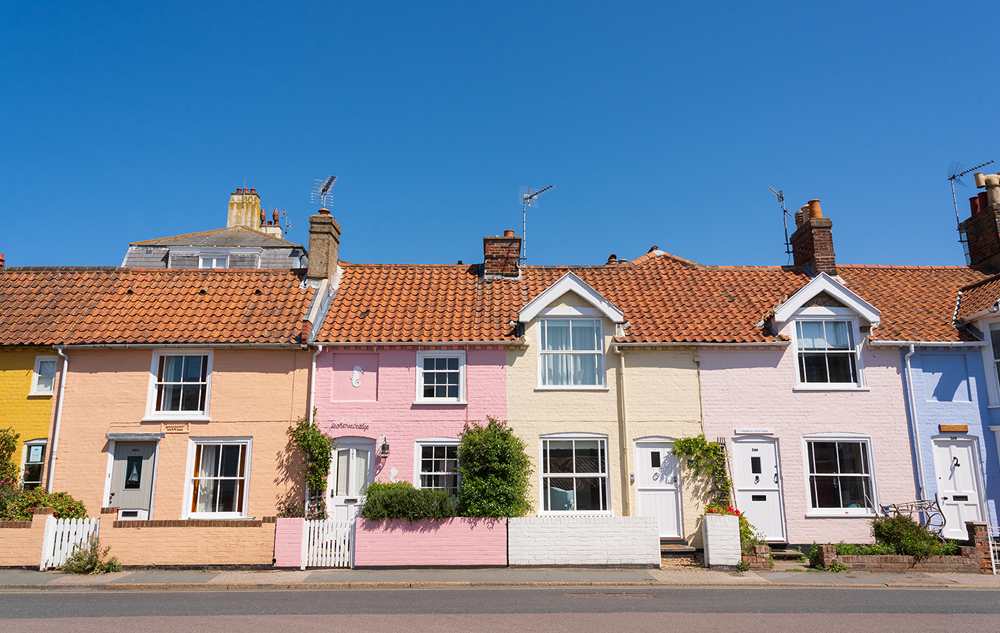Owning a holiday home means taking care of it over the winter months too. Stormy and cold weather is more likely to cause damage in winter, and the risk of burglary also increases at this time of year.
 © David Calvert / Shutterstock.com
© David Calvert / Shutterstock.com
How many holiday homes are at risk?
Police are continually issuing warnings that unoccupied holiday homes are easy targets for burglars. They have urged owners to ensure their properties are made secure.
In England alone, 216,000 properties are unoccupied for more than six months each year, while there are 27,000 in Wales and 24,500 in Scotland.
The worst nightmare scenario is driving over to your holiday home, only to find something isn’t right when you arrive. If the door is already unlocked, you know you have problems. Then, you discover items are missing when you enter.
In fact, burglars could have completely cleaned you out, even stealing the furniture, depending on how easy it was to access your property undetected.
What security measures should owners take?
Deter burglars by making sure the property isn’t obviously empty.
This means ensuring post isn’t stuck in the letterbox, as this is a surefire way of advertising nobody is living there. Enlist the help of friendly neighbours whom you trust and ask them to keep an eye on things.
Have the lights on a timer so they will come on at night, giving the impression someone is home. You can set them to illuminate and turn off again at different times, both upstairs and downstairs and in the hall.
If you can’t tidy the garden yourself on a regular basis, employ a gardener. If it starts to get overgrown, your property will scream that it’s empty.
It may sound obvious, but always ensure the windows and doors are securely locked at all times in your absence. Install a good CCTV and alarm system, as enhanced home security is one of the best defences against intruders when your property is empty.
Today’s advanced technology means you can install a doorbell with a camera, so you can see and communicate with someone on the doorstep, even if you’re hundreds of miles away.
Can I insure my empty house?
Unoccupied house insurance is something you must look into for your holiday home out of season, but there are certain conditions attached. Most insurance policies will not cover a totally unoccupied property.
Your holiday home will be considered unoccupied if nobody has lived there for at least two months. However, you can get round this by asking a family member or a trusted friend to stay overnight a couple of times a month.
If you’re going over to carry out maintenance, or to do the garden, you could stay overnight yourself. To all intents and purposes, this means your house is “occupied”, so your insurance policy will remain valid until it’s in regular use again.
In the worst-case scenario, should you arrive at your unoccupied holiday home and find there’s been a break-in, contact your insurance company right away. Then, arrange for a locksmith, glazier or other tradesperson to attend to repair any damage caused by the burglars.
Always check the small print and the terms and conditions of your policy to ensure you’re not caught out.
If important items such as furniture, fixtures and fittings have been stolen, invest in holiday let furniture packages. This will ensure your furniture is replaced with top quality items and you will be ready to open for visitors again in time for the new season.
How long can a property be empty?
You may wonder how long you can leave a house empty without paying council tax. The answer is there’s no rule set in stone UK-wide about how long you can avoid paying council tax.
Unfortunately for landlords, empty property council tax is a bit of a grey area legally. Some homes don’t get a Council Tax bill for as long as they remain empty. However, as landlord of a holiday home, if your rental property is empty for two years or more, you can be forced to pay double your council tax. Make sure you fully understand the local rules set by the council.
